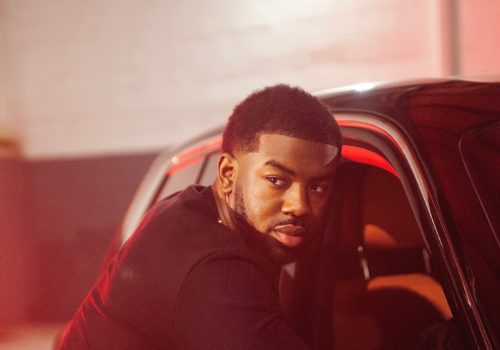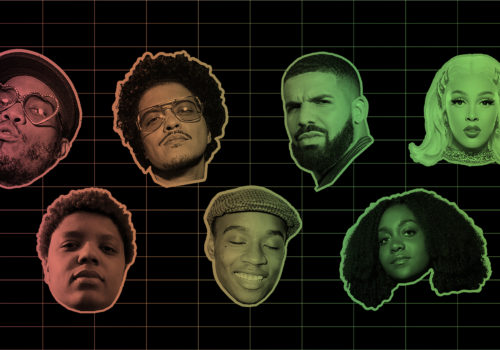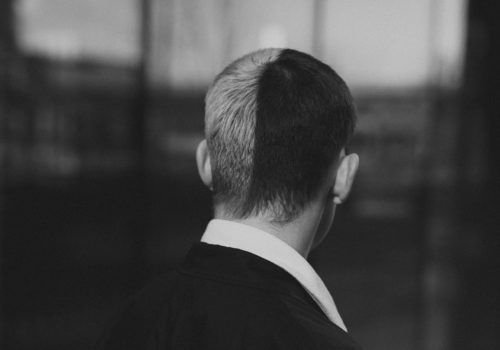Extraterrestrial: Exploring alienation and identity in Ireland
Words: Dylan Murphy
Photography: George Voronov
As part of the forthcoming online performance Extraterrestrial: A Black Irish Celebration of Identity, FeliSpeaks, JyellowL, Erica Cody and more took to the stage in The National Concert Hall in Dublin. Ahead of their performances, Dylan Murphy spoke to the trailblazing acts in the backrooms of the historic building about identity and embracing what makes each of them unique.
A young Lecs Luther AKA Rejjie Snow was still an artist in his infancy, Pam from Pillow Queens was still writing tunes out her back with David Balfe and drill music was yet to board a redeye from Chicago to Athlone. In short, the explosion of innovative Irish music we are seeing today was in its incubation period. That’s not to say there wasn’t good music, but any loose conversation in the back corner of a smoking area will tell you that it feels different now.
Somewhere between the rise of the internet, new innovative technology and the borderless nature of trends and subcultures on social media, rappers from Drogheda now often feel as much in common as artists from Croydon.
Moreover, London can act as a great example for the benefits of immigration that Ireland is currently enjoying. A quick glance at the evolution of jungle, garage and later grime music from largely first and second-generation immigrants in the English capital highlights the beauty in metropolitan melting pots.
While there may be no distinct genre emerging as of yet in Ireland, it’s clear that there’s a wave of young black creatives informed by their own distinct experiences making a splash on a global scale across a number of mediums.
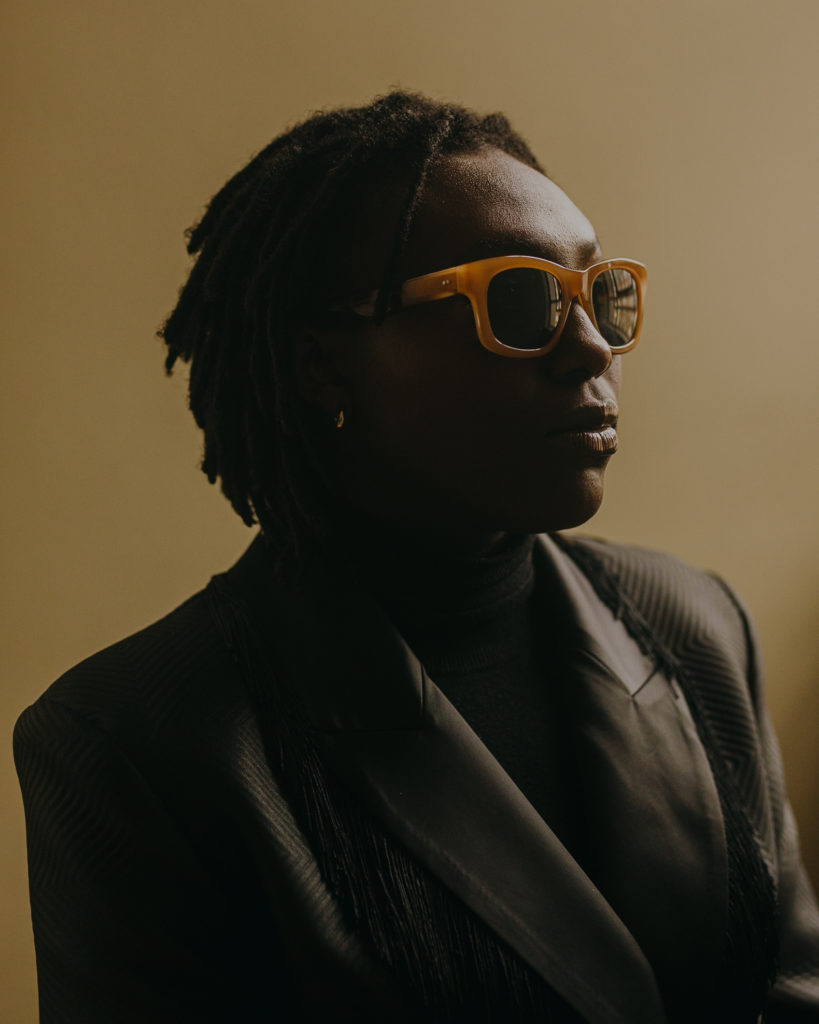
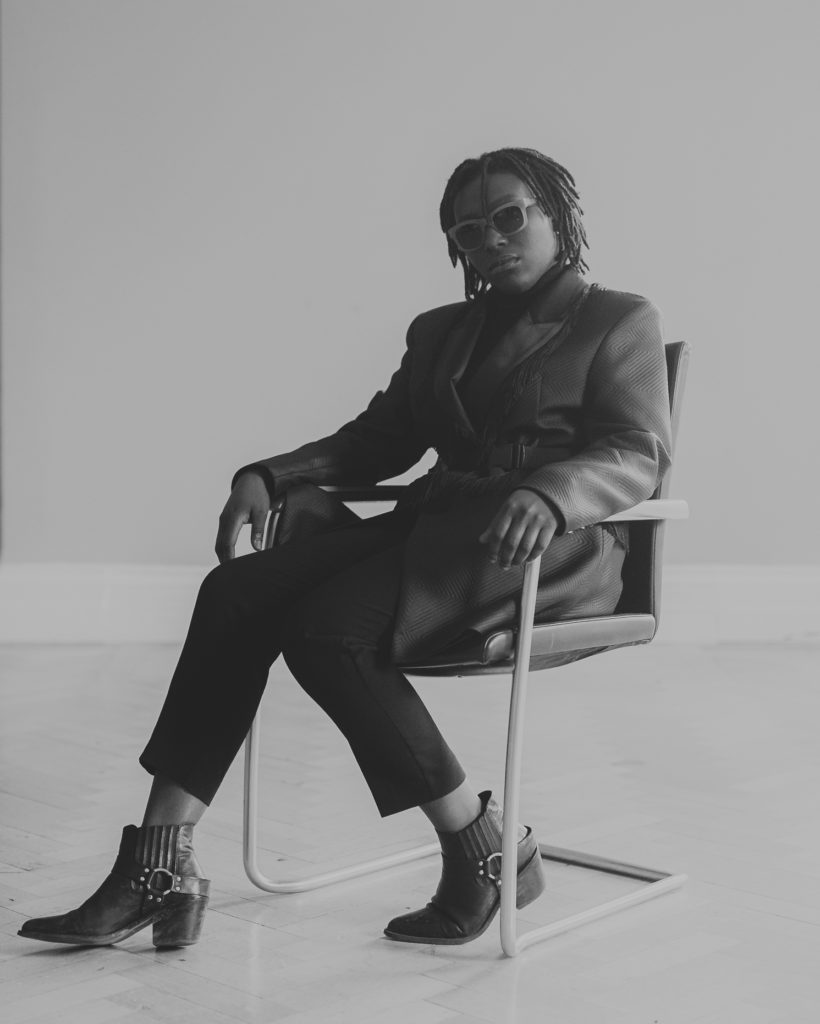
If I am already different or the other, I might as well celebrate it
FeliSpeaks
One such trailblazer is poet and playwright FeliSpeaks. Having curated the series of performances in the National Concert Hall around evolving ideas of identity in Ireland and what it means to be othered, it was fitting FeliSpeaks would talk so passionately about the future of society in a building draped in history. For Feli her identity is her superpower.
“If I am already different or the other, I might as well celebrate it”, she says, tucked away in a quiet back room moments after she left the stage.
“I thought about extraterrestrial and alienation as a celebration of the other, rather than a separatist perspective. It’s more that ‘ok let’s acknowledge that we are oddballs, let’s acknowledge we are different in many different ways’ and celebrate it and be excited about it.
It’s more of a statement than something that could be called into question. Taking out the questions empowers the people who are already alien, it empowers the others. Instead of questioning what they are we should be accepting, celebrating and amplifying that”, she says, repeating herself for dramatic effect.
“Amplifying all our weirdness, thats what makes us exciting and special you know?
In terms of the conversation about identity, art does the beautiful job of nearly cementing it in a place and a time. It gives it historical context, it gives it a foundation it can be built upon. Rather than, when it is being discussed it is healthy and it works for the people who are here and in the now, but creating art that outlives you gives a timestamp that is the uniqueness that is now – this black Irishness, the middle eastern Irishness, there’s so much now that is evolving into Irishness.”
These agile approaches to nuanced ideas often go out the window when it comes to online conversation. Not that someone’s identity should be up for debate online in the first place, but while Twitter has become a breeding ground for redundant takes, music in particular is a vehicle for understanding experiences that are not our own.
“Art helps us to relax in the rigid lines in which we describe these things”, Feli explains.
“It helps us to breathe easy because it gives us multiple windows to the same subject. It takes a lot of pressure from everybody else who hasn’t made up their minds of what this means, what this evolution means, this evolution of Irishness.”
While music can provide a unique prism through which to understand individual experiences, it can simultaneously reflect ongoing societal changes that don’t fit into 280 characters.
Tebi Rex, in a way, are greater than the sum of their parts. Whilst both Matt and Max tell me they could fit seamlessly into indie and rap circles seamlessly as individuals, they prefer to embody the weirdness that comes with being a rap-pop duo from Kildare from very different backgrounds.
“In maybe a more generic sense, me and Matt have been othered in very different ways,” Max says fresh from soundcheck.
“But as a band as a whole, we are kind of on the outside of many things and many music cultures… You are talking about the makeup of the band being two different personalities from two different backgrounds and two different races. It’s a whole hodgepodge of stuff that doesn’t necessarily fit in”.
Nodding towards the Earl Sweatshirt line in ‘Chum’ – “Too black for the white kids and too white for the blacks”, Max admits there’s a bittersweet magic arising from the evolution in Ireland despite not feeling like everything necessarily fits in neatly.
“Not to be a PSA about it on some real corny shit but I think we are maybe one of the best examples of what modern Ireland is and what it looks like. It’s messy and all over the place and it’s constantly changing and we look different and we act different and talk different and sometimes the music is different but it’s on the same project. To me, the optimistic version is we are what Irishness is or could be”.
In that same breath, Choice Prize-nominated rapper JyellowL has been fighting for a better version of Ireland. Becoming a figurehead in the Black Lives Matter protests in the capital whilst simultaneously developing a reputation as one of the country’s most thought-provoking artists, J routinely weaves considered meditations on culture, politics and identity in his music.

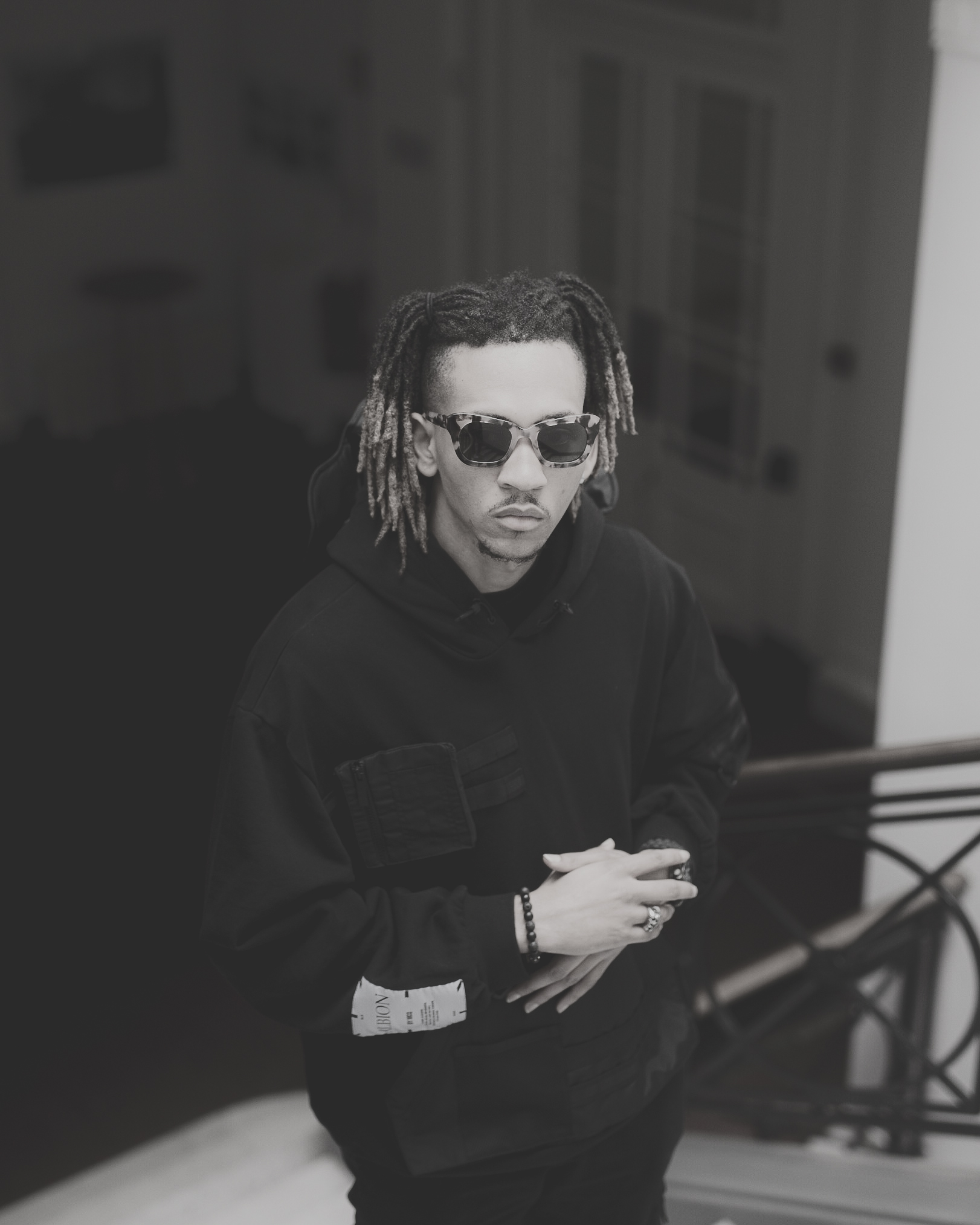
It is important to have a conversation and have an understanding that you can be yourself, you can be every bit of your Afro and still be Irish. Having that balance and not having to compromise one for the other.
JyellowL
Speaking from the top of a staircase, his tall frame casts a stuttered shadow down the spokes of the bannister. Echoing Max’s sentiments, JyellowL notes creating boxes for everything simplifies issues and bespoke experiences that are not meant to be compartmentalised for consumer’s convenience.
“I think people here, especially first generation immigrants, first-generation Afro-Irish people suffer a lot from identity crises and things like that”, J tells me.
“So I think it is important to have a conversation and have an understanding that you can be yourself, you can be every bit of your Afro and still be Irish. Having that balance and not having to compromise one for the other.
Being Irish to me… like I said I don’t really have a group mentality and I don’t subscribe to group identities so… it’s bespoke to me. It’s just me, the African, Jamaican, Nigerian person that I am… It’s just me in an Irish cultural context.”
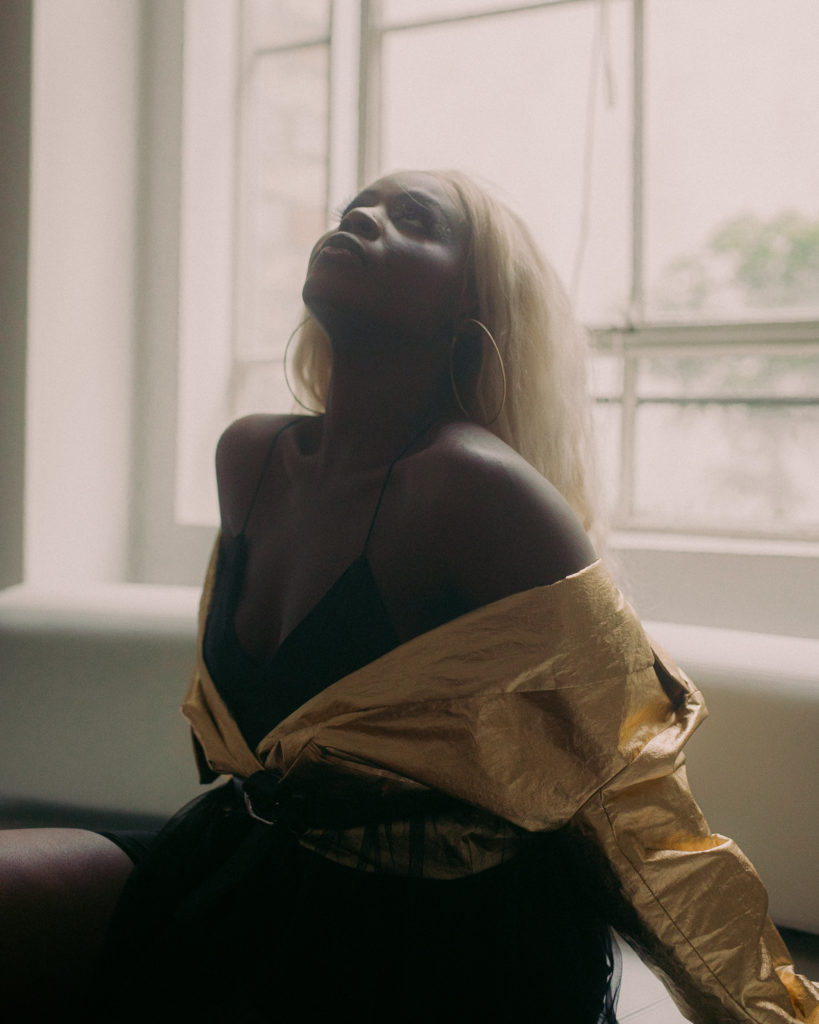
I don’t know if it is subconsciously imprinted in my mind and it’s like ‘ok I need to let people know who I am’ and just kind of remind people, or maybe I am just reminding myself
Celaviedmai
Acts like JyellowL and Tebi Rex are spearheading a genre-agnostic wave of musicians challenging traditional conceptions by staying true to their lived experience rather than deliberately seeking to create something new. Galway’s Celaviedmai is cut from the same cloth and has always evaded convenient categorizations. Feeling as comfortable penning love songs as she is raging rap anthems, Mai’s stream of consciousness approach to writing results in striking albeit less explicit records about the black experience in Ireland.
Part of the experience of Extraterrestial involved the artists asking themselves who they were as a self-affirming way of taking ownership of their craft and being. Though Mai admits perhaps unknowingly she has been doing this already.
“It [her own experiences] kind of just seeps in, it’s kind of subconscious, I don’t realise I’m doing it…” she admits.
“I don’t know if it is subconsciously imprinted in my mind and it’s like ‘ok I need to let people know who I am’ and just kind of remind people, or maybe I am just reminding myself” she says.
It’s through her music that Mai believes her words can act as a beacon that “sends off a message that you can digest little by little and connect to and makes you feel part of something…”
“Even if you aren’t rapping consciously about racism and these things you subconsciously do have messages in there that connect with people.”
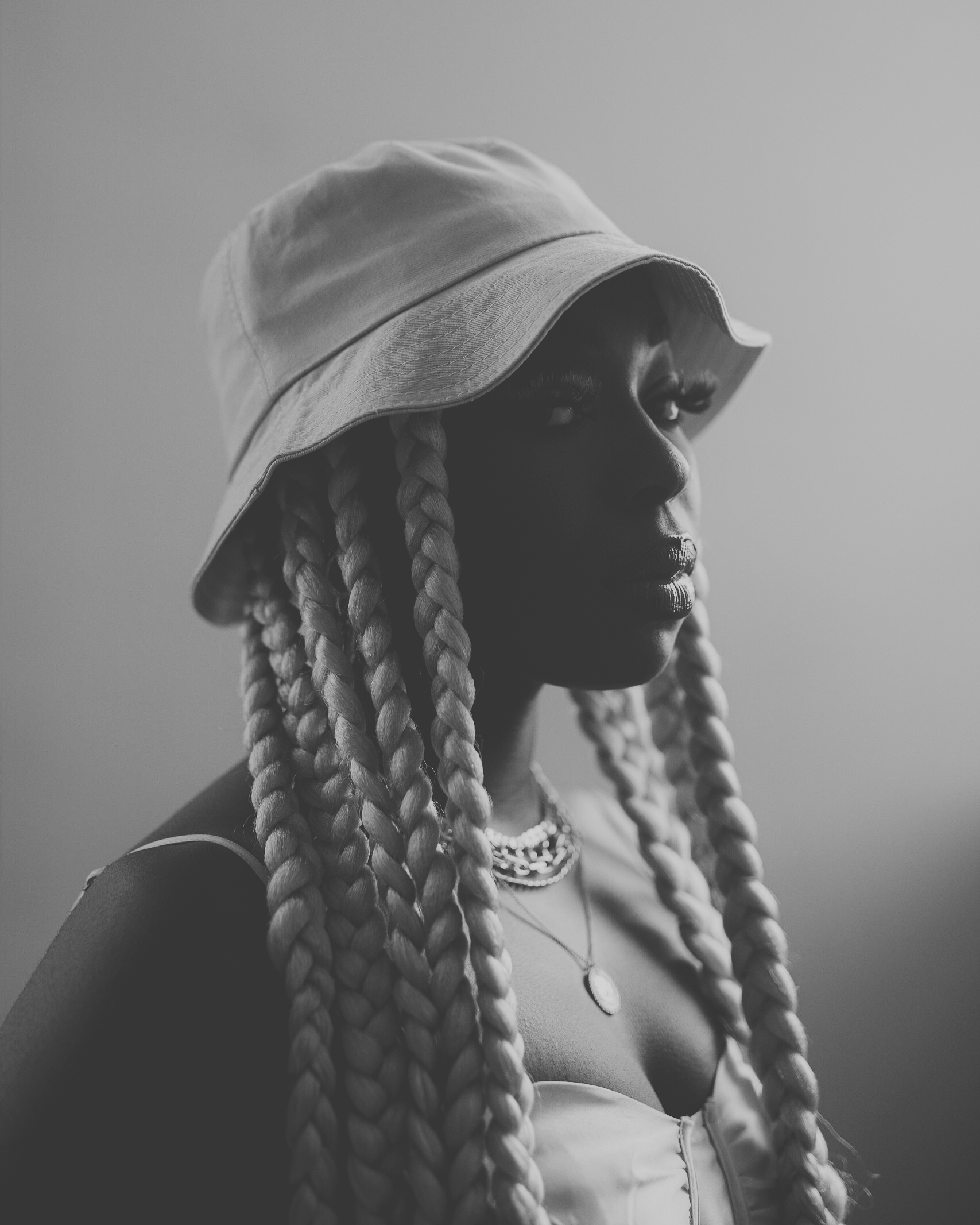
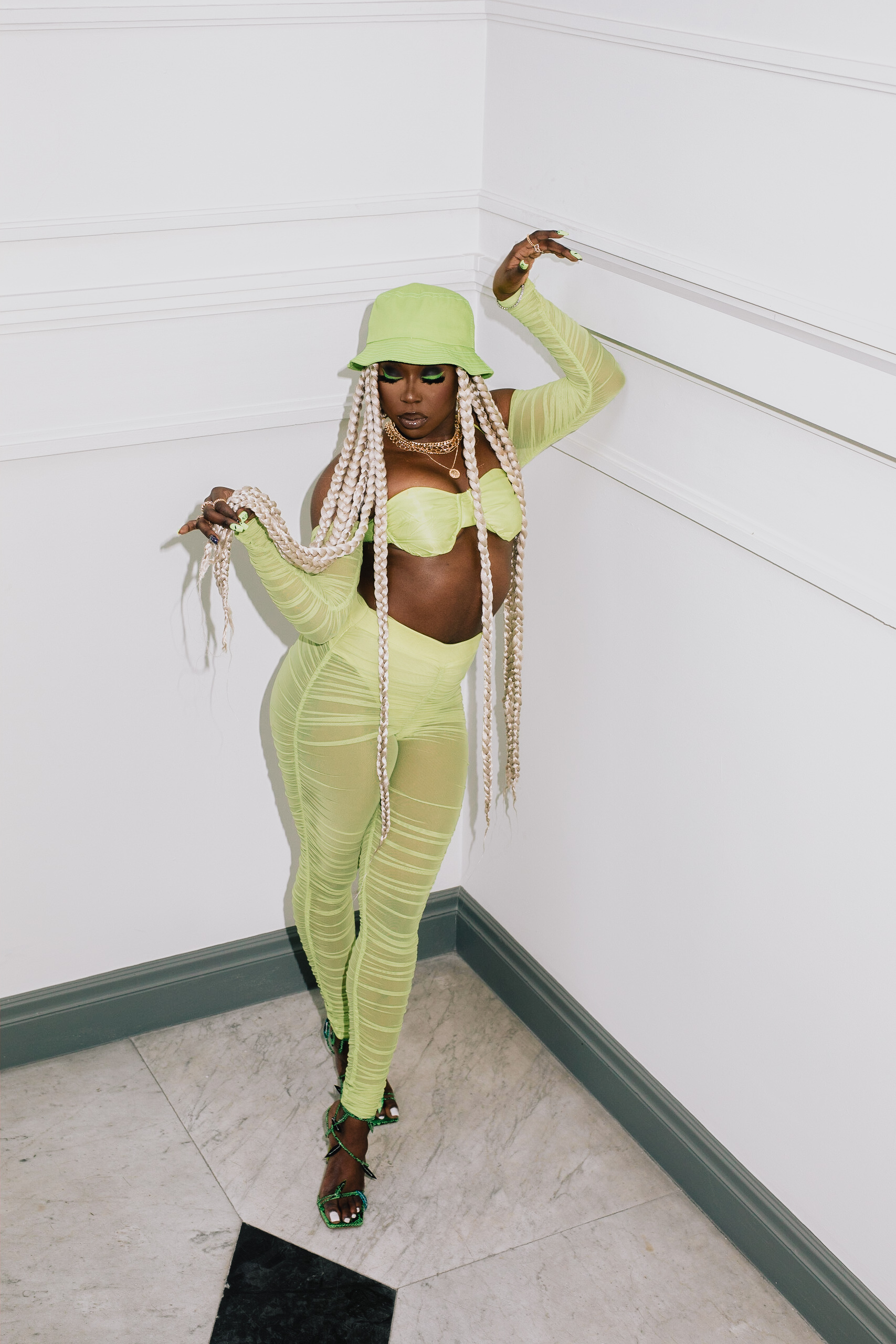
Being a woman of colour in Ireland you already feel alienated.
Alicia Raye
Rather than being celebrated and co-existing, Belfast-based singer and rapper Alicia Raye notes that women of colour are often compared, placed into the same boxes and forced to compete against each other in the music industry.
“Being a woman of colour in Ireland you already feel alienated” she tells me.
Coupled with a childhood spent in Direct Provision, she explains that she has been categorised and marginalised her whole life. Though music has been an outlet in the face of adversity Alicia remains disappointed by the lack of opportunities and space for women of colour at a local level.
“Even with the type of music I make I don’t know a lot of other artists or female artists who make my music or the same type of genre so I also feel with my music I’m a little bit alienated…”
Expanding on this idea Alicia suggests there is only room for a select number of artists who fit industry criteria.
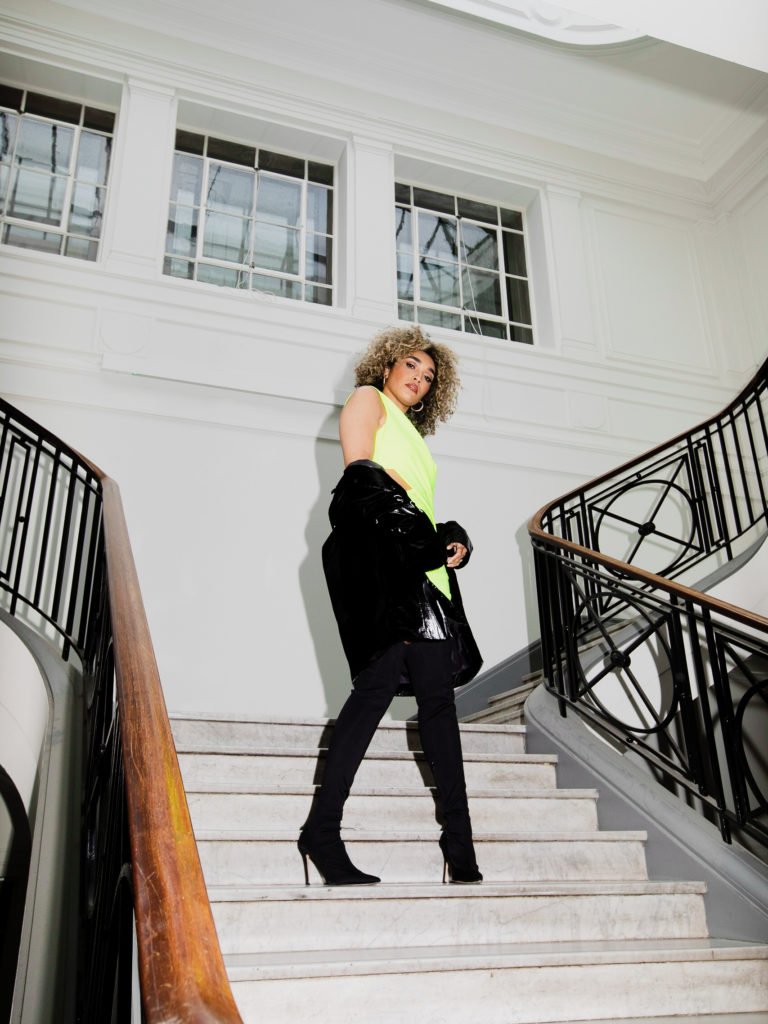
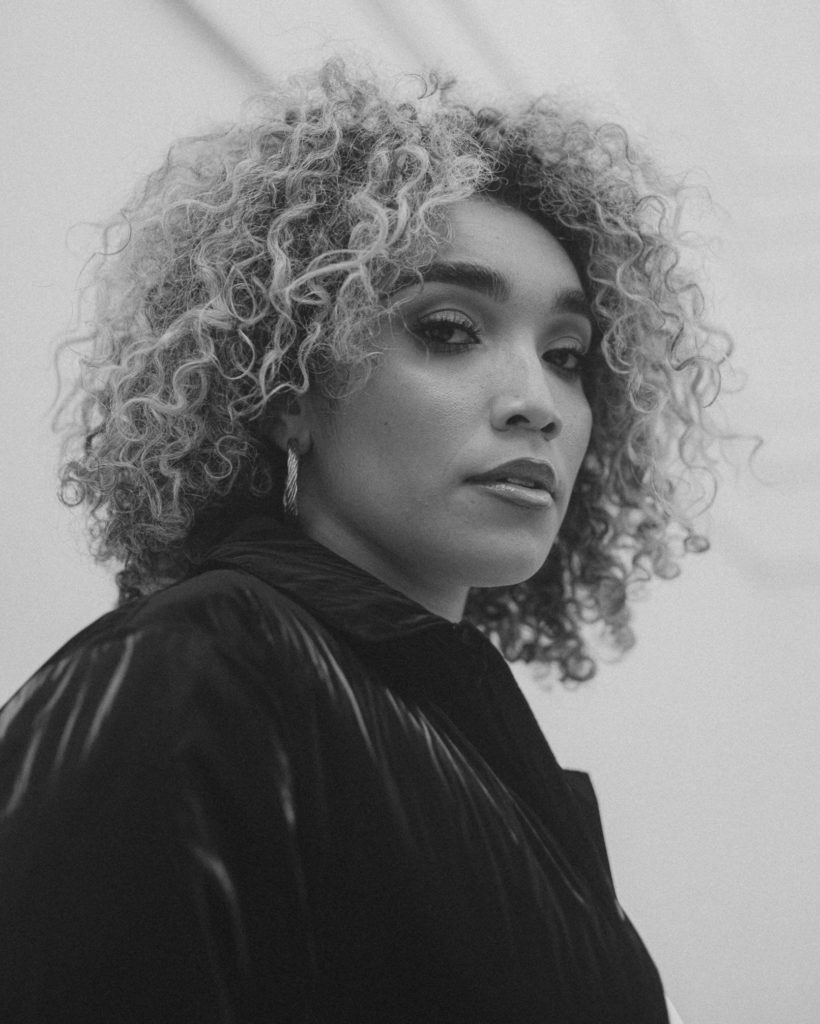
It’s really important to embrace what we all do as individuals to put it in the one stage where you can be unapologetically yourself and you are being celebrated.
Erica Cody
Erica Cody reaffirms those ideas and explains that in an industry where there is pressure to conform, celebrating individuality in every arena is vital.
“It’s really important to embrace what we all do as individuals to put it in the one stage where you can be unapologetically yourself and you are being celebrated”, she says showing no signs of tiredness after a long day.
“It’s not like ‘oh you are all this one genre, let’s just put you in there’, it’s more of a celebration than a thing because so often we get compared to each other when we are not actually alike. Now moving forward it’s important to embrace artists as they are and not just lumping them all into one category.”
Tebi Rex’s Max adds to this idea in a wider context saying, “There is a feeling with your music to conform. You make a song that’s five minutes and it’s like ‘hey this will probably do better if it is three minutes. I’m a big proponent of people doing what they want and they’ll always put barriers up to doing what you want – ‘’oh i’d like if they did this with more of an Irish accent’ or ‘drill isn’t really Irish music so why are they doing it’.
People put up these artificial barriers, there’s no pleasing those kinds of people. The reality of what they want is they don’t want you making music like that looking like that.”
This is a sentiment not lost on Dundalk rapper Reggie. Hopscotching between hip hop and drill music, the rising star represents an increasingly popular wave of acts threatening to break out of Ireland off the back of DIY music videos and insatiable droves of organic listeners.
“I’m the new sound, I’m the new wave, I’m the new generation because that’s what I feel I represent as a musician. Not just cause of my age, but because of the people I’m trying to open the door for back in the scene”, he explains.
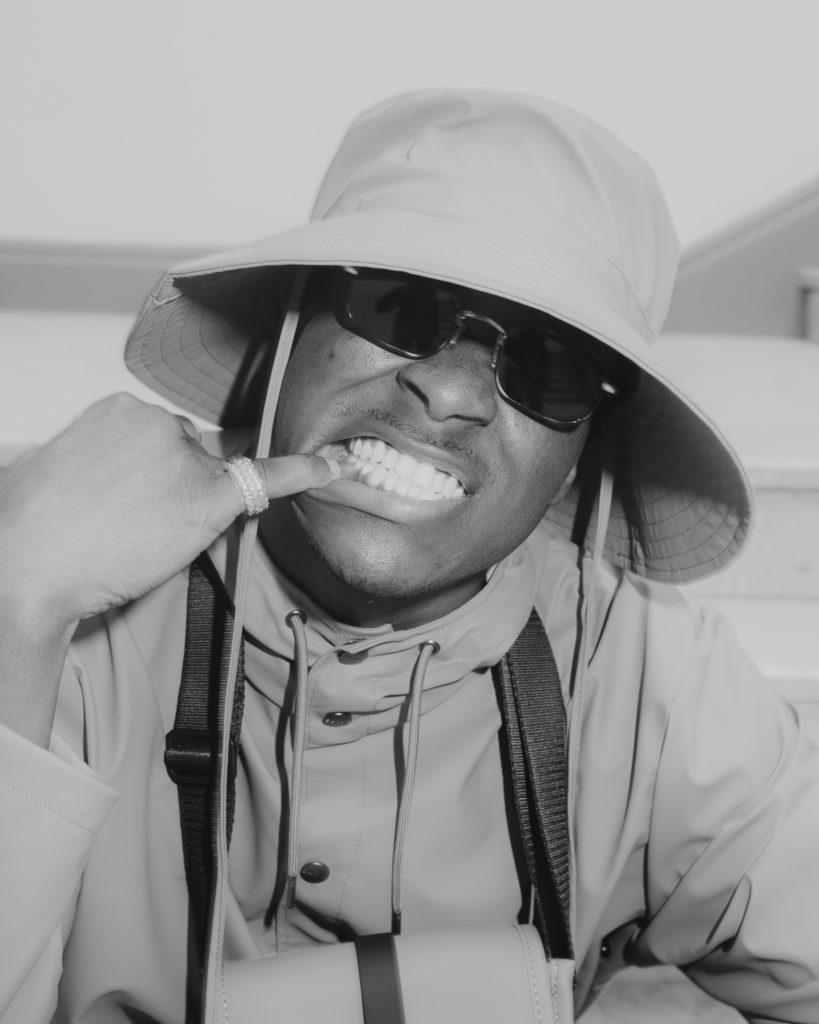
I’m the new generation because that’s what I feel I represent as a musician. Not just cause of my age, but because of the people I’m trying to open the door for back in the scene.
Reggie
Much like the UK there is often a reluctancy in the mainstream to accept new misunderstood subcultures that speak for marginalised people.
“I think it’s [Having a voice] very important because it opens doors for people behind me to be able to express themselves on these platforms. People are also able to state their opinions on aspects of culture or whether it’s politics, it gives us a platform to speak our opinion when it isn’t heard sometimes.
When we are making noise you can’t ignore it for too long.”
Tune in on Thursday 20 May at 20.00 for Extraterrestrial: A Black Irish Celebration of Identity available on the National Concert Hall’s YouTube and Facebook.



